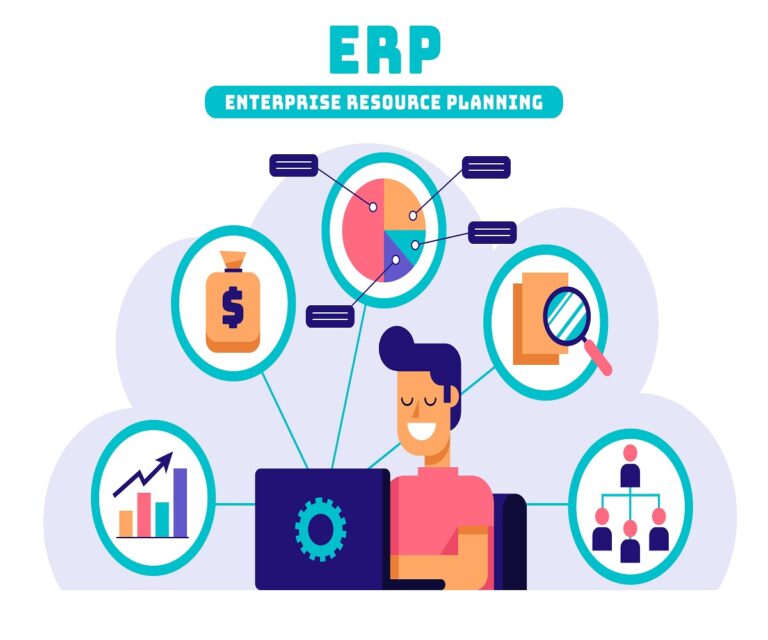Having the proper tools to streamline your operations is essential in the fast-paced corporate environment of today. Software for enterprise resource planning (ERP) is crucial in assisting businesses in effectively managing their activities. This blog post will walk you through the process of choosing the ideal ERP programme for your company’s needs.

Identifying Your Company's Needs
It’s important to obtain a thorough understanding of your specific business requirements before exploring ERP choices. Identifying fundamental business operations that ERP may improve, such as finance and accounting, inventory control, human resources, and customer relationship management, is part of this approach. Spend some time identifying the problems and blockages that restrict production while also thinking about your long-term business goals.
Types of ERP Software
When it comes to ERP software, you have several deployment options to choose from:
On-premises ERP: Perfect for businesses with particular security and customization requirements.
Cloud-based ERP: Scalability, accessibility, and cost-effectiveness are provided by cloud-based ERP for companies of all sizes.
Industry-Specific ERP Solutions: Designed to fulfil the special requirements of industries like manufacturing, healthcare, or retail.
Open-Source ERP Options: Allows for flexibility and customization but may require more technical expertise.
Budget Considerations
A key first step in choosing an ERP is to balance your budget. Think about both short-term savings and long-term costs. Calculate the cost of maintenance, support, and licencing payments. To accurately predict future costs, assess the system’s potential to scale.
Key Features to Look For
To ensure your ERP aligns with your business needs, focus on these key features:
Core Modules and Functionality: Check the software’s core modules and functionality to see if it has functionalities like finance, supply chain, and HR.
Integration Capabilities: Ensure seamless integration with your current tools and systems with the help of integration capabilities.
User-Friendliness and Training Needs: An intuitive interface reduces your team’s learning curve.
Options for Customization: Check if the ERP may be modified to fit your unique workflows.
Reporting and Analytics Tools: Access to powerful reporting and analytics tools can offer insightful information.
Vendor Selection
Just as important as picking the appropriate programme is picking the right vendor. Conduct extensive research on ERP suppliers, read client testimonials, and ask for demos or trials. A trustworthy vendor need to have a track record and provide dependable service.
Implementation and Support
Carefully consider staff training and data migration as part of the implementation process. To keep your system operating effectively, make sure the ERP vendor offers sufficient continuous support and updates.
Security and Compliance
Security of data is crucial. ERP solutions with strong security features and industry compliance should be sought out. Think about backup and disaster recovery alternatives to safeguard your important data.
ROI Assessment
Calculate the cost savings and efficiency advantages your ERP system provides to determine the return on investment. Monitor key performance indicators and be ready to change as necessary to maximise return on investment.
Case Studies and Success Stories
Examine actual instances of companies that have adopted ERP systems successfully. Gain knowledge about the advantages of selecting the proper ERP by learning from their experiences.
Common Mistakes to Avoid
Avoid these common pitfalls during the ERP selection process:
Neglecting User Input: It’s important to involve end users in the decision-making process.
Rushing the Selection Process: Give your selections careful consideration and conduct thorough research.
Neglecting Scalability: Ensure the ERP system can grow with your business.
Ignoring Data Migration Challenges: Anticipate and plan for data migration complexities.
Conclusion
Choosing the appropriate ERP software for your company is a strategic choice that will have a big impact on how things get done. Spend some time analysing your requirements, planning your finances, and thinking about the most important elements. You may prepare your company for a more successful future by avoiding common mistakes and studying examples of successful implementations.
